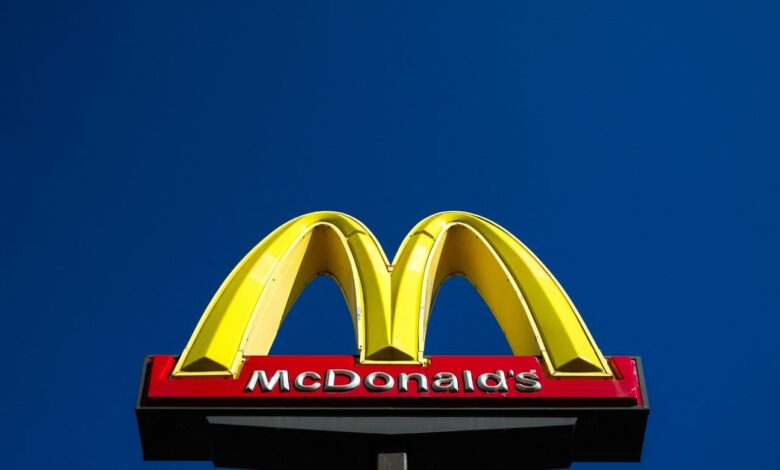McDonald’s shares slip after downgrade spurred by weight-loss drug popularity

McDonald’s shares took a hit on Tuesday as the rise of weight-loss drugs threatened to impact the fast food chain’s earnings. The stock dropped by 1.7% after equity analysis firm Redburn Atlantic downgraded McDonald’s stock rating from buy to sell. The threat comes from a class of drugs known as GLP-1s, which help regulate blood sugar and appetite, leading to changes in Americans’ eating habits.
According to Redburn Atlantic analysts Chris Luyckx and Edward Lewis, the use of GLP-1 drugs could result in McDonald’s losing up to 28 million customer visits, translating to a revenue loss of $482 million per year. This could account for about 0.9% of the company’s total sales. The impact of these drugs is expected to transform how Americans consume food, particularly affecting brands that cater to lower-income consumers, such as McDonald’s.
The report highlights that lower-income households using GLP-1 drugs tend to decrease their spending on food away from home, with this trend persisting over time. On the other hand, higher-income users eventually revert to their previous spending habits within a year. This shift in behavior extends beyond individual users, reshaping group dining and household routines, which could have significant implications for brands targeting lower income consumers.
In addition to the threat posed by weight-loss drugs, McDonald’s also faces challenges from inflationary pressures and consumers’ strained budgets. The gap between eating out and dining at home remains wide, leading to concerns about value and pricing fatigue among consumers. The analysis refers to GLP-1 drugs as “demand disruptors” for restaurants like McDonald’s, as they reduce appetite and limit calorie intake.
While the adoption of GLP-1 drugs is not yet widespread, with only 6% of the adult population currently using them, the potential for wider adoption could lead to a reduction in caloric intake at restaurants, including fast food chains. McDonald’s is deemed the most exposed among fast food brands to the impact of increased GLP-1 drug usage.
Despite these challenges, Peter Saleh, a restaurant and food distributors analyst at BTIG global financial services, believes that McDonald’s may not see a significant impact from GLP-1 drugs in the near term. Saleh points out that McDonald’s core customer base consists of low- and middle-income consumers who may not be able to afford these drugs. However, he acknowledges that the landscape could change in the future.
In conclusion, while the rise of weight-loss drugs presents a potential threat to McDonald’s earnings, the fast food chain faces a range of other challenges as well. The impact of GLP-1 drugs on consumer behavior and spending patterns remains a topic of interest and concern for the food industry.





